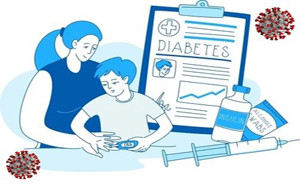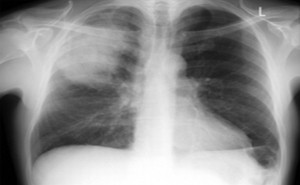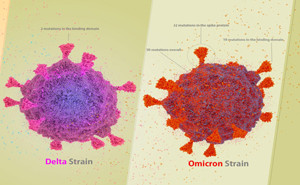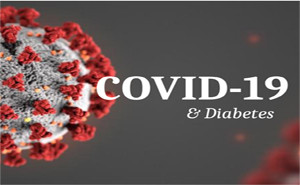Featured
European Heart Journal:
Management of
cardiometabolic risk factors should become a priority for physicians. The
long-term impact of COVID-19 on cardiovascular (CV) health and mortality is
also emerging as a major global concern.
Non-pharmacological
supportive approaches:
The management of long COVID tends to be
largely supportive....
Nature Medicine
Post-acute
sequelae of severe acute respiratory syndrome coronavirus 2 (SARS-CoV-2)—can
involve the pulmonary and several extrapulmonary organs, including the
cardiovascular system. A few studies have investigated cardiovascular outcomes
in the post-acute phase of the COVID-19; however, most were limited to
hospitalized...
Children who are infected with
COVID-19 are at a higher risk of developing diabetes, according to a new study
by the Centers for Disease Control and Prevention (CDC). Increased incidence of
diabetes seen among patients aged younger than 18 years after acute COVID-19
infection versus those without COVID-19.
Key Summary
What is already...
The rapidly escalating coronavirus
disease 2019 (COVID-19) pandemic has focused attention on the diagnosis and
treatment of patients with acute respiratory infection in an unprecedented
manner. Although most of the lung injury patients have is believed to be caused
by the virus, concern over bacterial co-infection also informs current
treatmen...
Comparing COVID-19 variants (Delta vs. Omicron) RemoveAvailable Brand
The FDA announced it had amended
the emergency use authorizations for both the Moderna and Pfizer-BioNTech
vaccines allowing for a single booster dose for all individuals 18 years of age
and older after completion of primary vaccination with any of the approved COVID-19
vaccines.The CDC also recommends that
adults should get a booster at least...
The U.S. Food and Drug
Administration authorized Pfizer’s Paxlovid (nirmatrelvir tablets and ritonavir
tablets, co-packaged for oral use) for emergency use for the treatment of
mild-to-moderate coronavirus disease in adults and children 12 years and older weighing
at least 40 kilograms with positive results of direct SARS-CoV-2 testing, and who...
The U.S. Centers for Disease
Control and Prevention announced that the recommended isolation time for
people with COVID-19 is now reduced from
10 to 5 days for those who are asymptomatic.
The agency said that people who test
positive should isolate for 5 (five) days, and if they are asymptomatic, or
their symptoms are resolving (without fe...
COVID-19
may elevate the risk of hyperglycemia and other complications in patients with
and without prior diabetes history. Individuals
with preexisting diabetes show higher incidence of COVID-19 illness and poorer
prognosis upon infection. Likewise, an increased frequency of diabetes onset
and diabetes complications has been reported in patie...
Booster interval and age updatedThe U.S. Food and Drug
Administration (FDA) and CDC authorizing the use of a Pfizer-BioNTech & Moderna COVID-19 Vaccine to shorten the time
between the completion of a primary series of the 2 vaccines and a booster dose
to at least 5 months after completion of the primary vaccination series for
individuals 12 yea...
TAKE-HOME MESSAGE
Patients who are hospitalized with COVID-19 have
been shown to have a high risk of thromboembolic events post discharge. In
this open-label randomized trial, the authors showed that, in high-risk
patients who are hospitalized for COVID-19, the use of thromboprophylaxis
and rivaroxaban for 35 days after di...
The World Health Organization announced
Friday it has designated the newly identified coronavirus variant, B.1.1.529,
as a variant of concern, named Omicron.The new Omicron variant was first
reported to the WHO from South Africa on 24 November, 2021. It has also been
identified in Botswana, Belgium, Hong Kong and Israel. It appears to be spread...













